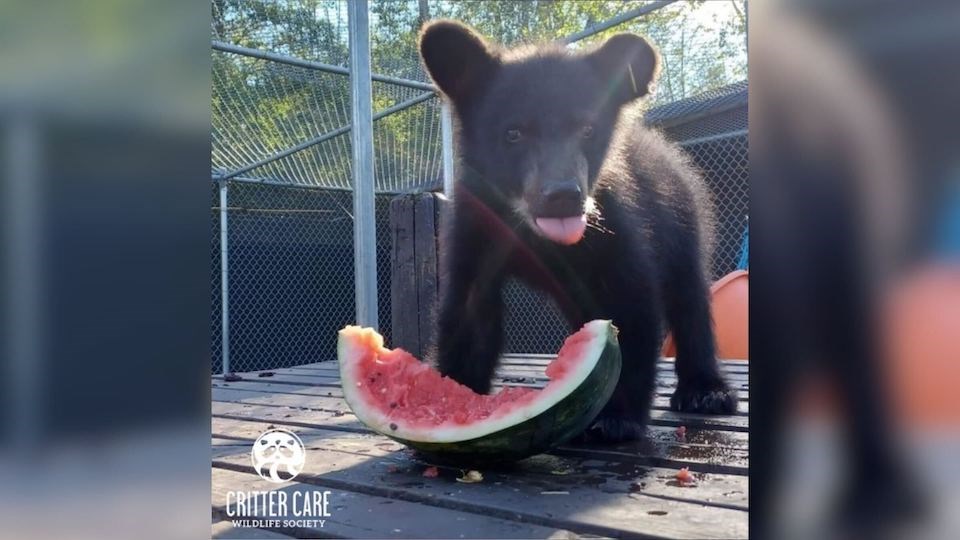Watermelon is considered a quintessential summer fruit — and humans aren't the only mammals who enjoy snacking on the refreshing treat.
An orphaned black bear cub that was rescued from the Sunshine Coast earlier this year prefers the juicy red fruit above all others, according to Critter Care Wildlife Society.
This little boy was discovered wandering alone next to a road and the rescue organization doesn't know what happened to his mother.
The bright-eyed bruin is described as "full of energy" and "quite vocal." And, on hot summer days, he enjoys munching on frozen watermelon.
Critter Care Wildlife Society Wildlife Assistant Faith Zdebiak tells Vancouver Is Awesome that the rescue organization isn't sure exactly how old the little bear is but that he was born over the winter when mother bears go into torpor, which is different from hibernation.
Torpor is defined as "a state of lowered body temperature and metabolic activity assumed by many animals in response to adverse environmental conditions, especially cold and heat," according to the Encyclopedia Britannica.
This year, Zdebiak says that the torpor period lasted roughly between November and March (it varies slightly from year-to-year).
Now, the young black bear resides at the Langley facility where he enjoys a range of sweet treats, including everything from his beloved watermelon to sweet grapes to papaya and much more.
Grapes are actually the fan-favourite among most bears and raccoons at the facility, noted Zdebiak. As they get older, bears will feast on more fish and berries to prepare them for a return to the wild.
Critter Care is currently running a naming competition for the petite black bear. The winner will receive a certificate and a plush bear cub key chain.
Currently, the organization is home to six bear cubs, as well as plenty of other wild animals; it is one of only three bear rehabilitation facilities in the province.
Zdebiak adds that "the safest way to keep wildlife safe is to not feed wildlife. When you feed them they know to come back."
Critter Care is not government-funded and relies on donations from the public and volunteers.



